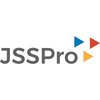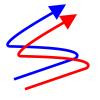Filter interviews by
Radhamani Group Associate Accountant Interview Questions and Answers
Radhamani Group Associate Accountant Interview Experiences
1 interview found
I applied via Naukri.com and was interviewed in Mar 2024. There was 1 interview round.
(2 Questions)
- Q1. What is TDS and GST?
- Ans.
TDS stands for Tax Deducted at Source and is a form of income tax collected by the government. GST stands for Goods and Services Tax and is a value-added tax levied on most goods and services sold for domestic consumption.
TDS is deducted by the payer at the time of making payment to the payee.
TDS rates vary based on the type of payment being made.
GST is a consumption tax that is levied on the supply of goods and servic...
- Q2. Credit Purchase Journal entry with GST?
- Ans.
Credit Purchase Journal entry with GST involves recording a credit purchase along with the applicable Goods and Services Tax.
Debit the Purchases account for the total amount of the credit purchase
Credit the Accounts Payable account for the amount owed to the supplier
Credit the Input Tax Credit account for the GST portion
Example: Debit Purchases $1,000, Credit Accounts Payable $1,000, Credit Input Tax Credit $100
Ensure ...
Top trending discussions






Interview questions from similar companies

I applied via Campus Placement and was interviewed in Jan 2024. There were 3 interview rounds.
In aptitude test alltype of Questions are asked
(2 Questions)
- Q1. Relavant Question are asked
- Q2. Relavent questions are asked
(1 Question)
- Q1. Basic and relavent Question asked.
Interview Preparation Tips
All seniors employees are very supportive at the time of interview sessions

I applied via Recruitment Consulltant and was interviewed in Jul 2023. There were 2 interview rounds.

(5 Questions)
- Q1. What's your key skills
- Q2. Where you know about the job
- Q3. How years of experience you have
- Q4. How you handle your work
- Q5. How much salary you expect
Interview Preparation Tips

I applied via Naukri.com and was interviewed in Jul 2023. There were 3 interview rounds.
(1 Question)
- Q1. About Previous experience and Self details
(1 Question)
- Q1. About Previous job and challanges
(1 Question)
- Q1. Salary discussion and date of commitment


Accounting test related to journal entries, profit and loss statement, balance sheet, BRS, rectification of errors
(3 Questions)
- Q1. Journal entries like sales, purchase, accrual, prepaid
- Q2. Tds, gst, advance tax, pf, pt, esi, income tax related questions
- Q3. Finalisation of accounts related questions
Interview Preparation Tips

I applied via Referral and was interviewed before Mar 2023. There were 2 interview rounds.
(4 Questions)
- Q1. Tell me about yourself and Process flow.
- Q2. Current CTC, Expectations.
- Q3. Are you able to work in 3.30 shift.
- Q4. What is your notice period.
(3 Questions)
- Q1. What is management fees and Performance fees.
- Ans.
Management fees are fees paid by investors to the fund manager for managing the fund's investments. Performance fees are fees paid based on the fund's performance.
Management fees are typically calculated as a percentage of the fund's assets under management.
Performance fees are usually calculated as a percentage of the fund's profits above a certain benchmark.
Management fees are paid regardless of the fund's performanc...
- Q2. Tell me about Derivatives in full details.
- Ans.
Derivatives are financial instruments whose value is derived from an underlying asset or group of assets.
Derivatives can be used for hedging, speculation, or arbitrage.
Common types of derivatives include options, futures, forwards, and swaps.
Options give the holder the right, but not the obligation, to buy or sell an asset at a specified price before a certain date.
Futures are contracts to buy or sell an asset at a fut...
- Q3. What is Option.
- Ans.
An option is a financial derivative that gives the holder the right, but not the obligation, to buy or sell an underlying asset at a specified price within a specific time period.
Options can be used for hedging, speculation, or generating income.
There are two types of options: call options (the right to buy) and put options (the right to sell).
The price at which the underlying asset can be bought or sold is called the ...
Interview Preparation Tips
- Fund Accounting
- Bank Reconciliation
- Financial Statement Analysis
- Nav performance
- Distribution
- Journal entries

Interview Questionnaire
4 Questions
- Q1. They are conducts three rounds , Written test,technical round to assess your real time work experience and finally HR round
- Q2. Writen test consist of 6 questions out of which 5 questions need to be answered with in a given period of one hour
- Q3. Written test is conducted to assess the Domain experience consist of questions from Journal entries, rectification of error s, final account s problem s,differentiating cap.exp and rev.exp etc...
- Q4. Finally HR round questions will be asked
Interview Preparation Tips

Interview Questionnaire
4 Questions
- Q1. They are conducts three rounds , Written test,technical round to assess your real time work experience and finally HR round
- Q2. Writen test consist of 6 questions out of which 5 questions need to be answered with in a given period of one hour
- Q3. Written test is conducted to assess the Domain experience consist of questions from Journal entries, rectification of error s, final account s problem s,differentiating cap.exp and rev.exp etc...
- Q4. Finally HR round questions will be asked
Interview Preparation Tips
Radhamani Group Interview FAQs
Tell us how to improve this page.
Interview Questions for Popular Designations
- Accountant Interview Questions
- Executive Accountant Interview Questions
- Senior Accountant Interview Questions
- Junior Accountant Interview Questions
- Financial Accountant Interview Questions
- Fund Accountant Interview Questions
- Chartered Accountant Interview Questions
- Accountant Cashier Interview Questions
- Show more
People are getting interviews through
Interview Questions from Similar Companies
|
Executive Accountant
4
salaries
| ₹3.2 L/yr - ₹6 L/yr |
|
Merchandiser
3
salaries
| ₹4.6 L/yr - ₹6.6 L/yr |
|
Windows System Administrator
3
salaries
| ₹4.1 L/yr - ₹4.7 L/yr |

Karvy Financial Services

Link Group

Servosys Solutions

Reliance Money
Calculate your in-hand salary
- Home >
- Interviews >
- Radhamani Group Interview Questions >
- Radhamani Group Associate Accountant Interview Questions






